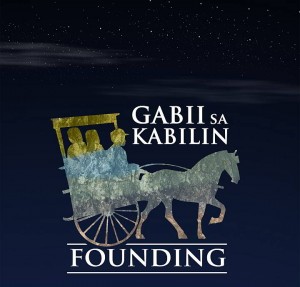
Even before the Spaniards came in 1521, there were Chinese settlers in Cebu. The Parian area was a Chinese settlement. When the Spaniards came, some of the Chinese nationals converted to the Catholic faith.
It wasn’t until 1952 when the Chinese community in Parian built a small chapel in honor of Our Lady Queen of China. After that, the Chinese Catholic Association was formed. In 1960, the group found a permanent home for the Sacred Heart Parish-Jesuit on D. Jakosalem Street.
The church itself is now an Archdiocesan Shrine. Its unique arches and gardens are worth noting, including a stained glass window above the altar depicting God the Father.
A large image of the Sacred Heart of Jesus is seen on the building’s curved façade.
Many Chinese settlers in Cebu remain loyal to their Buddhist roots, evidenced by their temples. One of the more prominent of these is the Chu Un Temple which was established in 1988 by couple Paterno and Rosita Luym in V. Rama Avenue. They went to Fo Guang Shan in Kaohsiung, Taiwan to ask monks to manage the temple in Cebu.
Fo Guang Shan means Buddha’s Light Mountain and Chu Un means compassion and gratitude. The temple is not just a place for worship, it’s also a place of teaching. The temple advocates three acts of goodness: do good deeds, say good words, think good thoughts.
It also upholds “harmony of self, harmony with others, harmony with the family, harmony with society and harmony with the world” and practices the “four givings of joy, convenience, hope and confidence.”
Practicing what it preaches, it gives its neighbors gift packs every Christmas and conducts medical and dental missions. Every first Sunday of the month, the temple’s teachers also teaches Taichi and meditation as a way of interacting with neighbors in barangay Calamba, Cebu City.
The Archdiocesan Shrine of the Most Sacred Heart of Jesus and the Buddhist temple are just two of the featured sites that are open to the public from 6 p.m. to midnight for the annual Gabii sa Kabilin on Friday, May 29..
All museums and heritage sites in Metro Cebu are open to visitors in this special event spearheaded by the Ramon Abotiz Foundation Inc./Rene Martel, Ramon Aboitiz Foundation Inc.
Disclaimer: The comments uploaded on this site do not necessarily represent or reflect the views of management and owner of Cebudailynews. We reserve the right to exclude comments that we deem to be inconsistent with our editorial standards.
